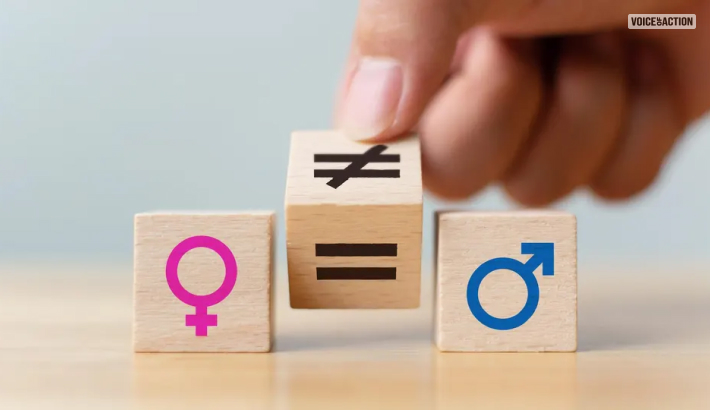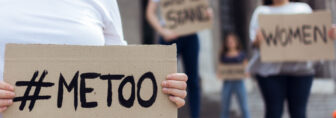Gender Inequality: An unsettled Distress- Causes, Examples and Ways to resolve it!!!!

It is shocking that not any country has achieved gender equality yet. It is even shocking to hear that not many are still voicing against gender inequality. Especially the reasons which are causing it.
If we think about taking action, the first step would be to know the root cause of the problem. This is what we will be discussing in the excerpt below.
The World Economic Forum says it takes roughly another century for gender equality, which doesn’t seem too far away now! So, what can we do in order to speed up the process?
In this excerpt below, we will be discussing that.
Gender Discrimination: The embryonic Gender inequality
Gender discrimination starts in early childhood (4 to 5 years) and often at birth itself. Most likely, a girl child will face more discrimination compared to a male child. And that is constant for any part of the world. Firstly, girls miss school in the highest numbers. According to a UNESCO report, 122 million girls miss school or drop out at a nascent stage.
In the last decade 140 million girls were married off. And here assumes the second most considerable peril- early marriage. Still couldn’t find the problem here! I said “girls,” not “women”. I hope that’s alarming enough!
Thirdly, countless girls are subjected to domestic violence at their parental or in-laws’. At our site:voiceofaction.org we believe that small awareness can inspire readers to bring out significant changes.
So, if you think society’s not headed the right way after reading the blog, try to play your small part. Any move can help recreate gender equality. However, we need to address the problem of gender discrimination first. We must make our girl child firm and resolute. Only then can they combat the social perils they face for the rest of their lives.
What is Gender Inequality?
You know what gender discrimination is by now. Hence, we can now focus on gender inequality. Well, discrimination is a single component of gender inequality only. Here are some simple ways to identify gender inequality:
- Discrimination or favoritism based on a gender type
- Providing routine privilege to a specific gender
According to a recent World Bank report, around 2.4 billion women are victims of gender inequality. So, let’s break down the issue diligently.
Well, The World Bank highlighted one major problem- financial bondage. Mostly, women play second fiddle in most of the global economies. And that’s pretty apparent.
At a micro level, we need all small and budding businesses to address the problem. Stop creating gender-specific job roles in your company.
Meanwhile, stop the gender norms (portraying women as weak, overtly empathetic, and snobbish), identities (dress code for women in Arabian nations), and expressions.
Gender inequality is illegal!
Did you know that? Maybe you did. But most people seem to be casual to address that. Convention on the Elimination of Discrimination Against Women, held by U.N Women, passed an international bill to proclaim gender inequality illegal.
In the US, there are federal laws and local directives to prevent gender inequality in different swathes of time. Meanwhile, experts say we can’t achieve foreign policy objectives if we don’t work on gender equality now.
We can leverage true economic freedom by leveraging the strength of women in our workforces.
Causes Of Gender Inequality

Here are the top causes of gender equality all over the world.
1. Unequal Employment Opportunity

It is not just the gender microaggression that some interviewees implement. Employment gender equality is also possible at the macro level. Starting from legal rights to employment. Recently, Afghanistan went under Taliban jurisdiction, and female employment levels have fallen considerably. They painfully restrict any opportunity for women.
As the life-threatening fear continues, not many fight this concern. Resulting in the women’s employment rate decreasing drastically and increasing the gender inequality gap. It is not just Afghanistan, but only ¾ of women have the same employment rights as men.
2. Lack Of Balance In Education

Around the world, there is only ⅕ of the female population who are likely to finish their primary school. While others between the age of 15-24 will not finish their schooling.
Only 58% of the total female population completes their basic study. In today’s competitive world, many aren’t eligible for quality employment with that basic education.
Education is a basic human right which helps craft intelligent and mindful individuals in the future. However, the lack of equality between men and women is a huge contributing factor to the inequality loop, especially when an impoverished family spends on a boy’s education and does not think the same for the girl child.
3. Poor Medical Care

It is no surprise that women require more qualitative medical care. This is to help them deal with their menstrual cycle and prevent any ovarian complications from an earlier age. For adults, this includes better forms of contraception, ensuring fewer pregnancy and childbirth complications, and better sex education.
However, it is not just the poverty-stricken countries; poor healthcare is a reality for some of the first-world countries as well. Adding the concept of ‘pink tax’ to menstrual products could add to the burden.
Poor health and a lack of nutrition can contribute to their lack of employment. On top of that, there is also a lack of research on diseases which affect women more than men, for example, autoimmune disorders and PCOs.
4. Lack Of Body Autonomy

Currently, the USA is fighting one of its strongest political battles. One of the federal rights of abortions was abolished. This has created such a strong ripple of concern that parties are holding off-time ballad elections for the amendment.
There could be nothing worse for gender equality than not having autonomy over one’s body. On top of that, the World Health Organization says more than 200 million women do not have body autonomy when it comes to pregnancy. Some rural areas in third world countries still do not sell women contraceptive methods or think of it as taboo.
In these areas with high gender inequality, women often do not get to make pro-health decisions for their own bodies, causing them both physical and emotional harm.
5. Equal Political Representation Still Lacking

Of all parliament cities worldwide, women fill only 24%. This means the rest of 76% approximately covers men. This number was collected from the census 2019. This is the condition of gender inequality.
Even in the most developed countries, the representation of women in politics is heavily less. This has the possibility of making more gender-biased decisions over more female-oriented political issues. For example, pensions, parental leave before and after pregnancy, gender-based violence like femicide, and basic human rights, which women in some areas still lack.
6. Poor Legal Protection

Legal protection against women-associated violence is very important. This includes sexual violence and domestic violence on a macro rate. However, studies from the World Bank have shown that only 1 billion women in the world have it.
Which leaves out a considerable amount of the female population. If we take the ‘violence on women’ statistics into consideration, more than 700 million women are subjected to domestic violence from a partner in the world.
This number doesn’t even include an account of sexual violence.
- The lack of legal representation is keeping the victims of violence in the aggrieved state.
- Domestic economic violence caused by the insatiable demand for dowry has killed more than 6.8 thousand with less to no chance of justice.
We are speaking of issues no man would dream of dealing with, and yet the legal representation still manages to keep women unsafe in their own homes.
7. Lack Of Religious Freedom

Extremist ideas of any religion are often imposed on the woman first. In the name of religious compliance, many women have lost their freedom.
The recent Taliban capture and oppression in the name of religion is a painful example of such a scenario. In a study by Brigham Young University, researchers have found an innate connection between religious intolerance and job opportunities for women.
The deep-seated social gender stereotypes prevent them from pursuing their religion freely; rather, they see it as a method of oppression.
8. A Clear Segregation Of Job

Starting from gender microaggressions to benevolent sexism, where to start? Job segregation is more dangerous than anything because people do not understand or see gender inequality.
However, it is there every time a woman is told:
- This job is not for them.
- No one can trust her passion because she is also a mother of two.
- She is physically and emotionally weak and, hence, can’t handle it.
- This is not a woman’s job.
To speak a few…
Every time someone indulges in such comments, they are pushing us a decade behind in achieving true gender equality.
Impact of Gender Inequality
Inequality is a subtle component of society. It’s omnipresent. Mostly, people in third and fourth-world countries face direct discrimination. The poor girls face education disparity. The same goes for non-white girls, almost worldwide.
Examples
To perceive the natural effect of gender inequality, let’s check out some examples here:
You will find that gender inequality is most significant in education. In battle-besieged and strife-torn countries, girls are 2.5% more likely to be dropouts than boys.
Secondly, we can consider the example of girls being forced into child marriage. After the pandemic, an unsurmountable number of families grew poor. So, an easy coping mechanism was marrying off the girl child.
Within the following year, 2.5 million girls will be married off. The last example is child labor. Globally, girls are expected to labor for chores alongside education. Hence, their focus shifts, and they tend to miss education.
Some girls are exposed to sexual exploitation and slavery, too. As per UNICEF, 370 million girls and women are exposed to sexual exploitation.
How To Step Forward?
Stepping forward and raising a voice against these is important:
- Even if it is at the micro level of donating your old books to someone underprivileged.
- Raising your voice against covert office gender inequality.
- Being authentic to one’s cause.
- Help educate and highlight the issues.
…Are to name a few ways.
Do you have any anecdotes of how you have stood against gender inequality? Do share it in the comment section.
More Resources:


























